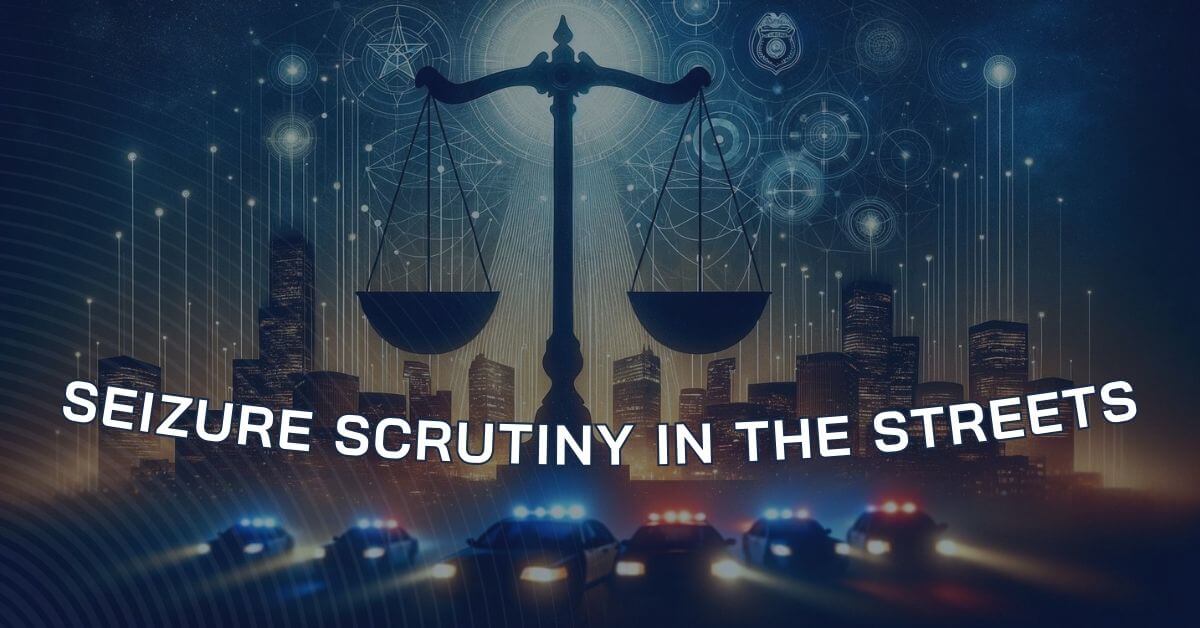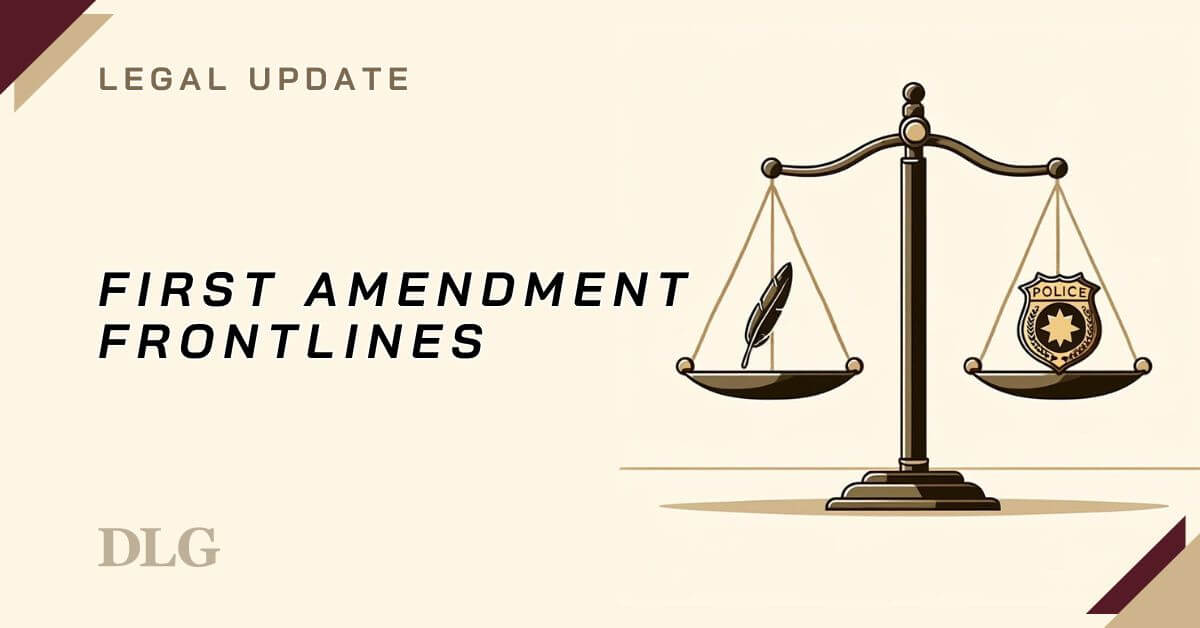Martinez v. High, a case out of the Ninth Circuit Court of Appeals, recently explored the intersection of duty of care and the State-Created Danger Doctrine, challenging law enforcement to carefully balance their protective role with the potential dangers their actions or inactions may induce.
The Plaintiff, Desiree Martinez, filed a lawsuit under 42 U.S.C. § 1983 against Clovis police officer, Channon High. Martinez alleged that Officer High violated her due process rights by mishandling and disclosing a confidential domestic violence report she made against her then-boyfriend, and fellow Clovis police officer, Kyle Pennington. After the District Court found that Officer High was entitled to qualified immunity, Martinez appealed, seeking review by the Ninth Circuit. On Appeal, the Ninth Circuit held that Officer High violated Ms. Martinez’s due process rights under the state-created danger doctrine. However, because that right was not yet “clearly established” at the time of the violation, the Circuit affirmed the district court’s grant of qualified immunity to Officer High.
This case arose in February 2013, when Ms. Desiree Martinez began a relationship with Clovis police officer Kyle Pennington. The couple moved in shortly after, and Ms. Martinez first experienced physical and sexual abuse by Mr. Pennington, starting in April 2013. This abuse continued over the next several months. On May 2, 2013, Ms. Martinez reported Mr. Pennington’s abusive behavior to the police. Several Clovis police officers, including Officer Kristina Hershberger, arrived at the scene. During her interaction with the officers, Ms. Martinez mentioned an earlier incident of abuse by Pennington that occurred at a hotel in Dublin, California. However, when this incident was brought up in front of Mr. Pennington, Ms. Martinez withdrew her statement. At some point during the interaction, Officer Hershberger made personal comments about Ms. Martinez and Mr. Pennington’s relationship, asking Pennington “what he was doing dating a girl like that,” and indicating that “she didn’t think Martinez was a good fit for him.” The officers left that night without arresting Pennington, and Ms. Martinez was assaulted by him again, later that night. Subsequently, on May 29, 2013, Ms. Martinez anonymously contacted the Clovis Police Department to report the ongoing abuse, and to ask the Department how she should proceed. Because of Mr. Pennington’s past violence towards her, Martinez made this report confidentially, due to her fear of retaliation from him. Eventually, Pennington moved Ms. Martinez to a nearby city, to avoid further involvement by the Clovis Police Department.
In Sanger, the abuse continued, and it was reported by neighbors who called 911 after witnessing an assault. When Sanger police responded, they did not immediately arrest Mr. Pennington or issue a protective order until the following day, despite Ms. Martinez’s visible injuries. During this time, Ms. Martinez was subjected to further abuse. In early September 2013, two phone calls between Pennington and his colleague, Officer High of the Clovis Police Department, occurred. Conveniently, on the morning of the September 3rd call, Ms. Martinez was scheduled to testify as a witness in a criminal preliminary hearing against Mr. Pennington. However, she was prevented from doing so because of Pennington’s abuse and intimidation towards her in the moments following the call. During the September 7th call, Officer High and Pennington spoke on speakerphone in front of Martinez. During the call, Pennington confronted Ms. Martinez, asking if she was “telling the cops” about his abuse. When Ms. Martinez responded “no,” Officer High interjected: “Yes, she did. I see a report right here.” As a result, Pennington again, caused severe additional abuse on Martinez. The phone conversations with Officer High provoked Pennington to continue abusing Martinez. On September 18, Pennington was eventually arrested.
In 2015, Ms. Martinez sued Mr. Pennington, his parents, several officers, and the cities of Clovis and Sanger, accusing them of violating her Substantive due process rights. On appeal in Martinez I, the Circuit considered the conduct of Officer Hershberger, the initial responding officer to the first 911 call. The Circuit held that the Officer violated Ms. High’s due process rights but found that the officer was entitled to qualified immunity.
Following Martinez I, the district court heard Officer High’s new motion on the qualified immunity defense. Officer High argued that, in light of the Ninth Circuit’s analysis of Officer Hershberger’s conduct, she should be afforded qualified immunity as well. The district court agreed, granting Officer High qualified immunity on these grounds. Ms. Martinez sought review by the Ninth Circuit. The basis for the §1983 claim in this case arose out of the Due Process Clause of the Fourteenth Amendment. The Due Process Clause functions as a limitation on state action, creating the general rule that officers and other state actors typically are not liable for failing to prevent harm caused by private parties. However, the State-created-danger doctrine is an exception to this rule. This exception is implicated when a state actor affirmatively places the plaintiff in danger by acting with deliberate indifference to a known or obvious danger. Ms. Martinez claimed that her situation fell within this specific exception. To establish this exception, the plaintiff must prove 2 things: First, an officer’s affirmative conduct must expose the plaintiff to a foreseeable danger she would not have otherwise faced.” Second, that the officer acted “with ‘deliberate indifference’ to a ‘known or obvious danger.”
Hearing the case on appeal, the Ninth Circuit affirmed the district court’s grant of qualified immunity to Officer High. The Court held that while Officer High did violate Ms. Martinez’s due process rights under the state-created danger doctrine by disclosing her confidential domestic violence report to Mr. Pennington, the right was not clearly established in 2013 when the violation occurred. Officer High’s disclosure of Ms. Martinez’s confidential report to Pennington, who she knew was an alleged abuser, placed Ms. Martinez in actual, foreseeable danger. This conduct increased Ms. Martinez’s risk of abuse by Pennington and put Martinez at risk of violent retaliation by Pennington. Officer High acted with deliberate indifference toward the risk of future abuse. Officer High was aware of Pennington’s violent tendencies and the ongoing domestic violence investigations. Despite her training on the importance of keeping victims’ reports confidential, Officer High answered Pennington’s phone call, disclosing Martinez’s confidential report to him. She knew that Martinez was in the room with Pennington during the call, exposing her to his violent reaction.
The Court made clear that within the Ninth Circuit: Moving forward, an officer is liable under the state-created danger doctrine if they reveal a victim’s confidential report to a violent offender in a way that heightens the likelihood of retaliatory harm to the victim.
Duty of Care requires officers to navigate the thin line between moral obligation and legal duty, a principle highlighted in our case today. Martinez v. High emphasizes the importance of understanding how our actions can lead to liability under the Due Process Clause, specifically when the state-created-danger doctrine is implicated. For law enforcement within the Ninth Circuit, going forward, an officer will be liable under the state-created danger doctrine when the officer discloses a victim’s confidential report to a violent perpetrator in a manner that increases the risk of retaliation against the victim.
MARTINEZ V. HIGH, No. 22-16335 (9th Cir. 2024)



